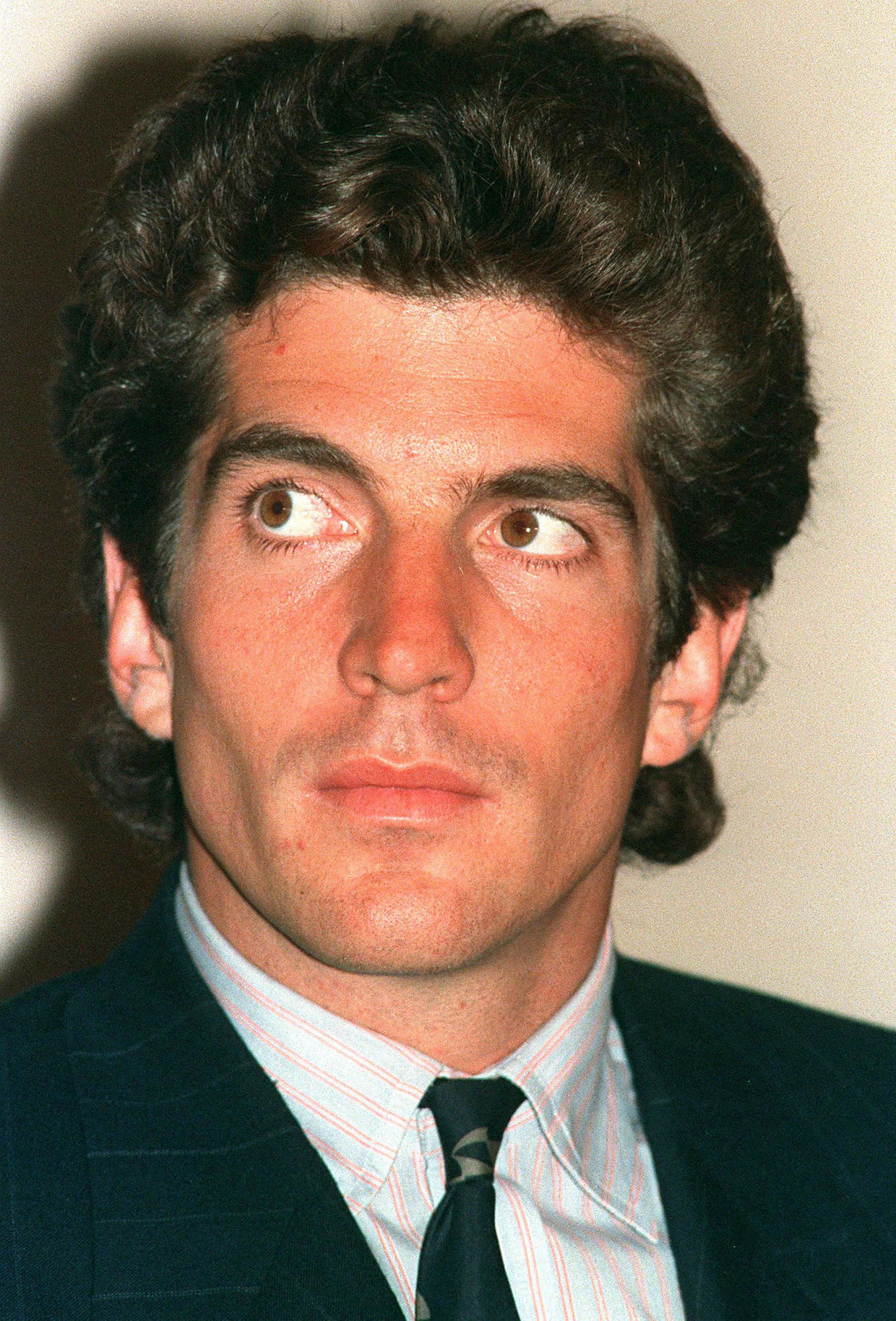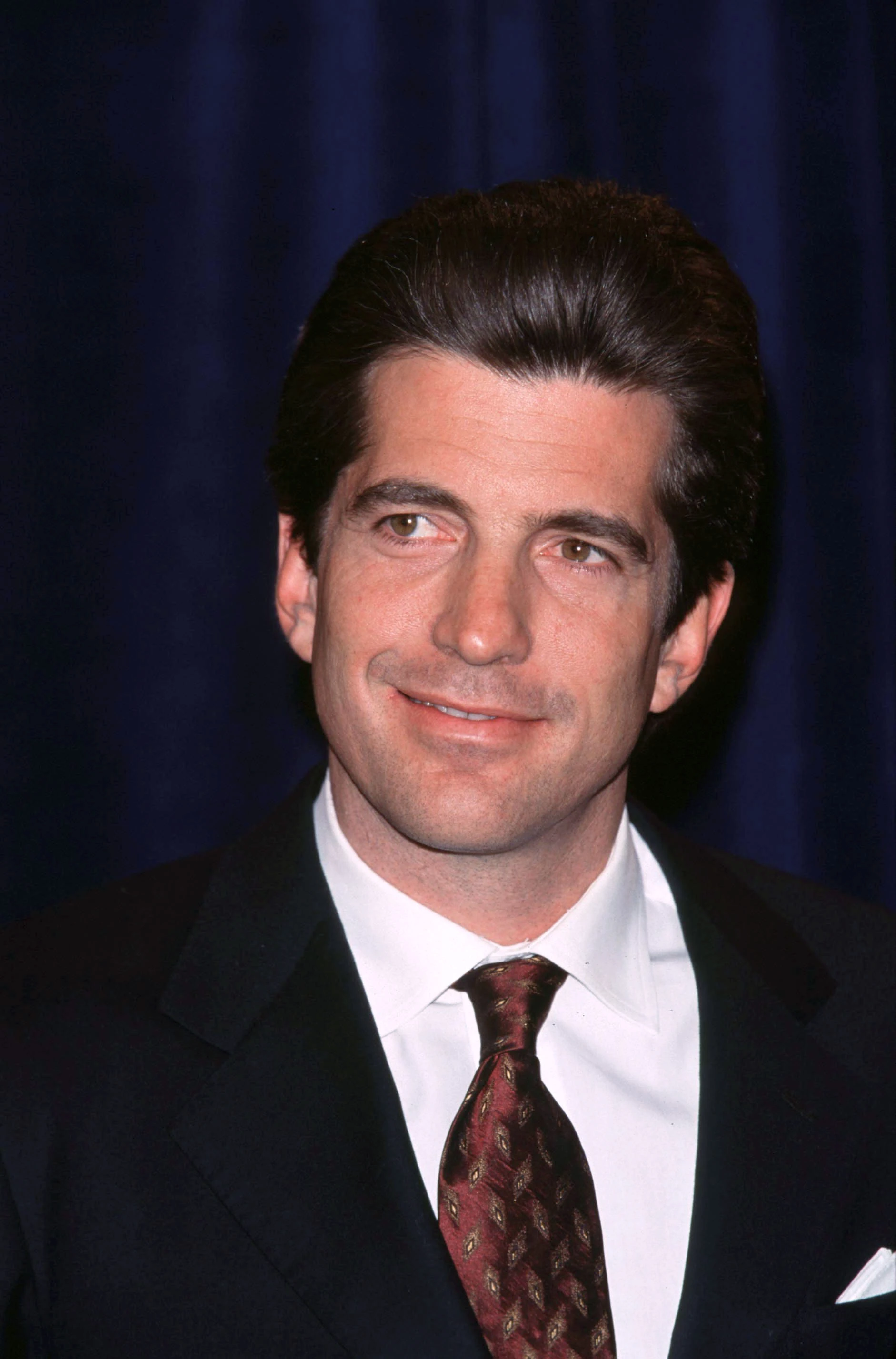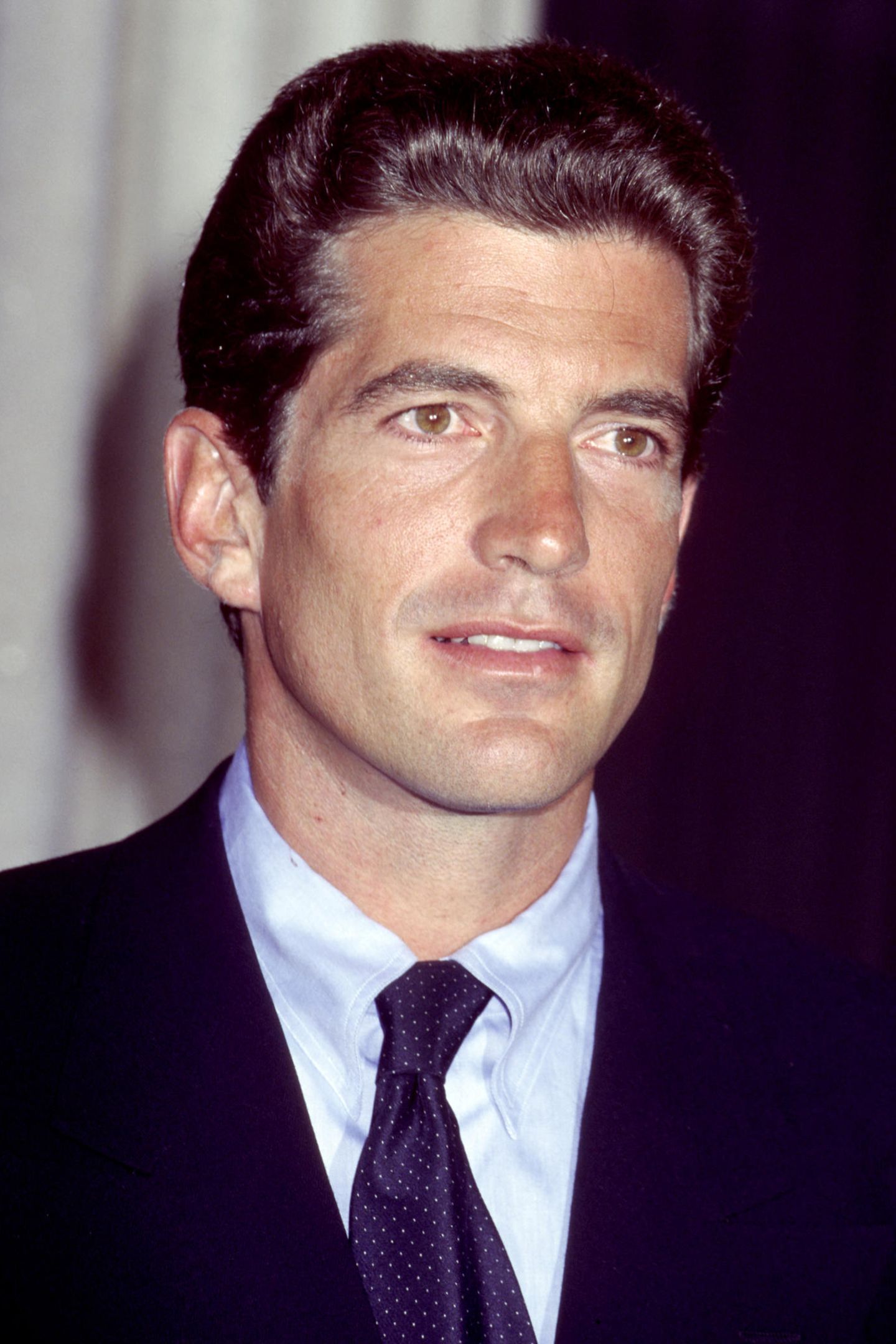Who Was John Jr. Kennedy? The Life And Legacy Today
Do figures from history truly remain relevant, or are they destined to fade from memory? For John Jr. Kennedy, the answer is resoundingly clear: his life, cut short far too soon, continues to hold a unique and lasting fascination for the American public, a testament to the enduring power of charisma, aspiration, and the weight of legacy. He was more than just the son of a president; he was a symbol of hope, a youthful embodiment of the American dream, and a man striving to carve his own path amidst the towering shadow of his family's history.
This exploration delves into the multifaceted life of John Fitzgerald Kennedy Jr., a man born into extraordinary circumstances and burdened with extraordinary expectations. His story is one of privilege and loss, ambition and introspection, public adoration and a yearning for privacy. By examining his formative years, his professional pursuits, and the personal relationships that shaped him, we aim to paint a comprehensive portrait of a man who captivated a nation and whose absence continues to be felt.
| Full Name | John Fitzgerald Kennedy Jr. |
|---|---|
| Date of Birth | November 25, 1960 |
| Date of Death | July 16, 1999 |
| Parents | John F. Kennedy and Jacqueline Kennedy Onassis |
| Siblings | Caroline Kennedy, Patrick Kennedy |
| Spouse | Carolyn Bessette-Kennedy (m. 19961999) |
| Occupation | Lawyer, Journalist, Magazine Publisher, Political Activist |
| Education | Brown University (B.A., History), New York University School of Law (J.D.) |
| Notable Works | Co-founder of George magazine, service as Assistant District Attorney in New York |
| Reference | The John F. Kennedy Presidential Library and Museum |
John Jr. Kennedy entered the world on November 25, 1960, in Washington, D.C., a city already buzzing with the anticipation of his father's ascendance to the presidency. As the son of President John F. Kennedy and First Lady Jacqueline Kennedy, his life was destined to be lived under a microscope. Affectionately dubbed "John-John" by the press, he quickly became a national darling, a symbol of youthful promise and the embodiment of the Kennedy mystique. His image was carefully cultivated, projecting an aura of innocence and boundless potential.
- Meet The Ervin Brothers Inspiring Stories
- Remembering Cindy Williams American Graffiti Ron Howards Costar
The early years of his life were steeped in the grandeur and intensity of the Kennedy White House. He witnessed firsthand the power and the pressures that came with leading the nation. Countless photographs capture him playing in the Oval Office, interacting with world leaders, and experiencing a childhood unlike any other. These experiences undoubtedly shaped his worldview and instilled in him a sense of responsibility, even at a tender age. He attended state dinners, met dignitaries, and observed the intricate dance of international diplomacy, all before reaching adolescence. However, this seemingly idyllic existence was also marked by the looming shadow of his family's legacy and the knowledge that he was constantly under public scrutiny. Each step he took, each word he spoke, was meticulously documented and analyzed.
Yet, this existence was not without its dark moments. The assassination of his father on November 22, 1963, cast a long and indelible shadow over John Jr.'s life. The image of the young boy, barely three years old, saluting his father's casket at the funeral is seared into the collective memory of a nation. It was a moment of profound grief and a stark reminder of the fragility of life, a moment that forced a child to confront loss and the weight of history. This defining event undoubtedly shaped his character, instilling in him a sense of resilience and a deep understanding of the burdens of public life. The loss of his father became an intrinsic part of his identity, a source of both pain and motivation.
Following his father's death, John Jr. and his sister, Caroline, were raised by their mother, Jacqueline Kennedy, who sought to provide them with a sense of normalcy amidst extraordinary circumstances. She fiercely guarded their privacy and strived to create a stable and loving home environment, shielding them as much as possible from the relentless glare of the media. Jacqueline understood the importance of allowing her children to grow and develop outside the confines of their family's legacy, encouraging them to pursue their own passions and forge their own identities.
- Margot Robbies Hottest Looks From Barbie To Beyond
- Danneel Ackles From One Tree Hill To Supernatural Fame
The Kennedy family relocated to New York City, where John Jr. attended private schools. He began his formal education at Collegiate School and later transferred to Trinity School, where he thrived academically and socially. He excelled in history and demonstrated a keen interest in current events, reflecting the intellectual curiosity that had been nurtured by his parents. Teachers remember him as a bright and engaged student, possessing a natural charm and a genuine interest in learning. He was popular among his peers, known for his easygoing personality and his ability to connect with people from all walks of life. While he embraced his family's legacy, he was also determined to establish his own identity and to be recognized for his individual merits.
His academic journey continued at Brown University, where he studied American History. He chose Brown for its reputation for academic freedom and its emphasis on independent thinking. At Brown, he sought to immerse himself in the college experience, embracing the opportunities for intellectual exploration and personal growth. He actively participated in campus life, joining clubs and organizations and engaging in discussions on a wide range of topics. He was known for his intellectual curiosity, his willingness to challenge conventional wisdom, and his commitment to social justice. His time at Brown provided him with a valuable opportunity to step outside the shadow of his family and to explore his own interests and passions.
After graduating from Brown in 1983, John Jr. embarked on a path that would eventually lead him to law school. He was driven by a desire to understand the complexities of the legal system and to contribute to the pursuit of justice. He enrolled at New York University School of Law, where he faced the challenges of mastering legal principles and developing his analytical skills. Law school proved to be a demanding but rewarding experience, pushing him to think critically and to hone his ability to articulate his arguments persuasively. He embraced the intellectual rigor of the law and saw it as a powerful tool for effecting positive change in society.
His path to becoming a lawyer was not without its setbacks. He famously failed the New York bar exam twice before finally passing on his third attempt in 1990. This experience, while frustrating, humanized him in the eyes of the public. It demonstrated that even someone born into privilege faced challenges and that perseverance was essential to achieving one's goals. His determination to overcome this obstacle resonated with many people who saw him as someone who was willing to work hard to achieve his ambitions. It also highlighted his commitment to the legal profession and his desire to make a meaningful contribution to the justice system.
Upon passing the bar, John Jr. joined the Manhattan District Attorney's Office as an assistant district attorney. He chose to work in public service, dedicating himself to prosecuting criminal cases and seeking justice for victims. He focused on cases involving organized crime, tackling complex legal issues and working long hours to prepare for trial. He approached his work with a sense of dedication and professionalism, earning the respect of his colleagues and the admiration of those he served. His experience as a prosecutor provided him with invaluable insights into the workings of the criminal justice system and deepened his commitment to upholding the rule of law.
In the mid-1990s, John Jr. embarked on a bold new venture: the creation of a political magazine aimed at engaging a younger audience. He believed that politics could be accessible and engaging and that it was essential to involve young people in the democratic process. He co-founded George magazine, a glossy publication that combined political commentary with celebrity profiles and lifestyle features. The magazine sought to demystify politics and to make it relevant to the lives of ordinary Americans. He served as editor-in-chief and infused the magazine with his own unique vision and personality.
George magazine quickly gained attention for its unconventional approach to political journalism. It featured interviews with prominent politicians and celebrities, covered controversial social issues, and offered insightful analysis of current events. The magazine's provocative covers, often featuring celebrities dressed as historical figures, generated considerable buzz and helped to attract a wider readership. While the magazine faced criticism for its sometimes-sensationalistic approach, it also succeeded in sparking conversations about important political and social issues. George magazine became a platform for John Jr. to express his own political views and to promote his vision of a more engaged and informed citizenry.
Beyond his professional endeavors, John Jr. was deeply committed to public service and philanthropy. He supported various causes, including education, environmental protection, and civil rights. He volunteered his time and resources to organizations that were working to make a difference in their communities. He believed that it was his responsibility to use his privilege and influence to help those who were less fortunate. He was a passionate advocate for social justice and a tireless champion for the rights of the marginalized. His commitment to public service reflected the values that had been instilled in him by his parents and his desire to live a life of purpose and meaning.
In 1996, John Jr. married Carolyn Bessette, a publicist who worked for Calvin Klein. Their wedding, held on Cumberland Island, Georgia, was a closely guarded secret, reflecting their desire for privacy amidst the intense public scrutiny they faced. Carolyn, with her understated elegance and sophisticated style, quickly became a fashion icon. The couple seemed to embody a new generation of American royalty, captivating the public with their youth, beauty, and charisma. Their relationship, however, was not without its challenges. They struggled to maintain their privacy in the face of relentless media attention, and they faced rumors of marital discord. Despite these challenges, they remained deeply committed to each other and sought to build a life together away from the public eye.
The constant media attention took a toll on both John Jr. and Carolyn. They were constantly photographed and followed by paparazzi, making it difficult for them to lead normal lives. They sought refuge in their close circle of friends and family, and they tried to create a sense of normalcy in their daily routines. They enjoyed spending time together, traveling, and pursuing their shared interests. They were both deeply committed to their careers and to their respective philanthropic endeavors. Despite the pressures they faced, they remained a devoted and loving couple.
Tragically, their lives were cut short on July 16, 1999, when the small plane John Jr. was piloting crashed into the Atlantic Ocean off the coast of Martha's Vineyard, Massachusetts. Also on board were Carolyn Bessette-Kennedy and her sister, Lauren Bessette. The news of their deaths sent shockwaves around the world, plunging the nation into mourning. The loss of John Jr. was particularly devastating, as he was seen as a symbol of hope and a reminder of the Kennedy legacy. His death marked the end of an era and left a void in the hearts of many Americans.
The circumstances surrounding the crash were investigated by the National Transportation Safety Board (NTSB), which concluded that the probable cause was pilot error. The NTSB determined that John Jr. had become disoriented in the hazy conditions and had failed to maintain control of the aircraft. The crash raised questions about his piloting skills and his decision to fly in adverse weather conditions. It also highlighted the risks associated with general aviation and the importance of proper training and experience.
The outpouring of grief following their deaths was immense. Memorial services were held in New York City and Washington, D.C., attended by dignitaries, celebrities, and ordinary citizens. The nation mourned the loss of a young man who had embodied the hopes and dreams of a generation. John Jr.'s legacy continues to inspire and to remind us of the importance of public service, the pursuit of justice, and the commitment to making a difference in the world.
John Jr.'s life, though tragically brief, was filled with purpose, passion, and a deep commitment to his family's legacy. He sought to forge his own path while remaining true to the values that had been instilled in him. He embraced the challenges he faced and strove to make a positive impact on the world. His life serves as an inspiration to us all to live with purpose, to pursue our dreams, and to make a difference in the lives of others. Even in his absence, his influence continues to be felt, reminding us of the enduring power of hope, resilience, and the pursuit of a better world.



Detail Author:
- Name : Ms. Yvette Yundt
- Username : dach.xander
- Email : hermann.joshua@tremblay.com
- Birthdate : 1971-02-13
- Address : 857 Lindgren Loaf East Jaceborough, RI 31921
- Phone : 513.459.9419
- Company : Schimmel-Leannon
- Job : Home
- Bio : Odio molestiae ratione vel debitis. Quo vero eaque et natus sapiente qui. Quisquam nam architecto ullam sit.
Socials
instagram:
- url : https://instagram.com/stracke2019
- username : stracke2019
- bio : Quam dolore ut fugit architecto est ut. Esse sint velit saepe nam deserunt.
- followers : 4237
- following : 2304
linkedin:
- url : https://linkedin.com/in/cole1591
- username : cole1591
- bio : Et voluptas ut dolorum omnis totam rerum harum.
- followers : 2325
- following : 231